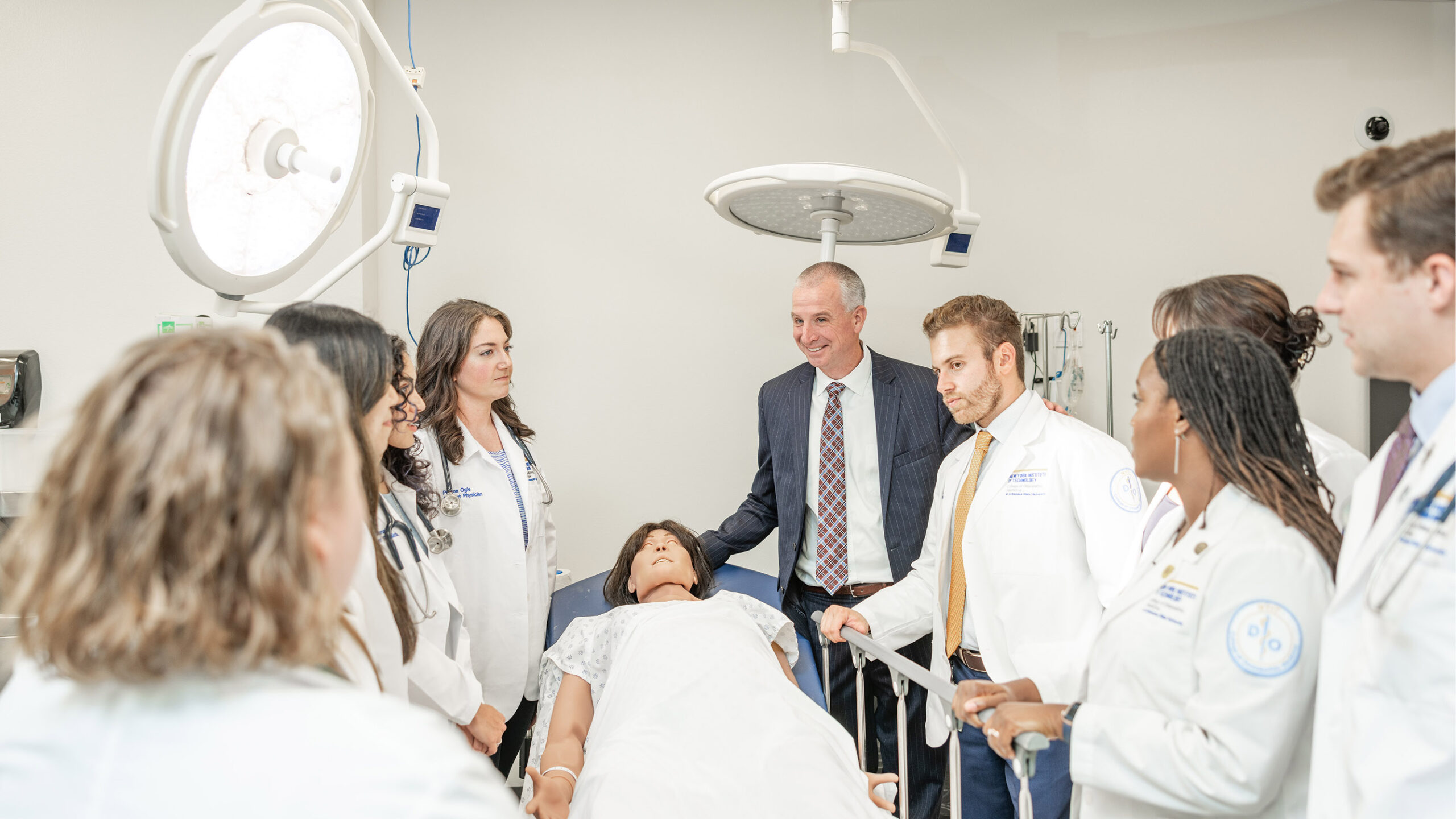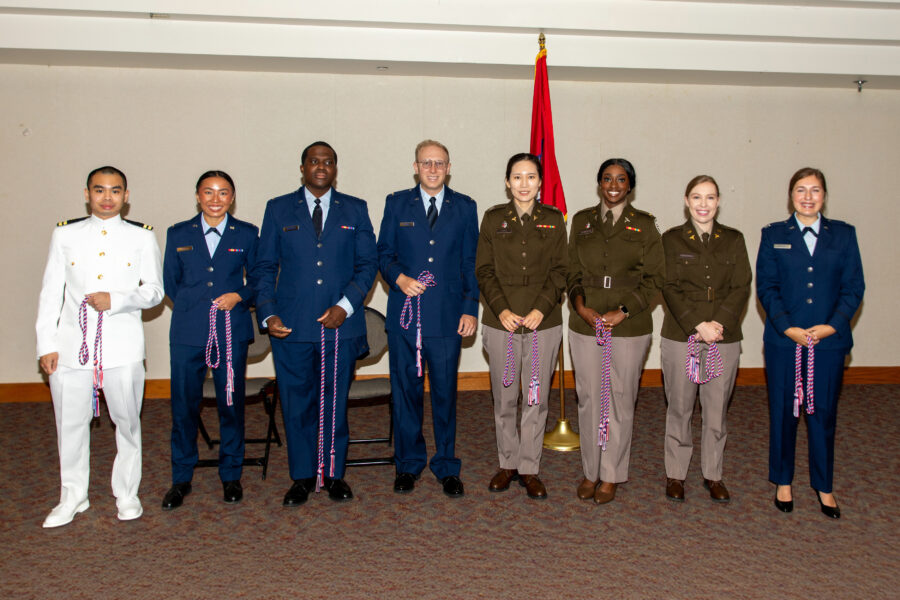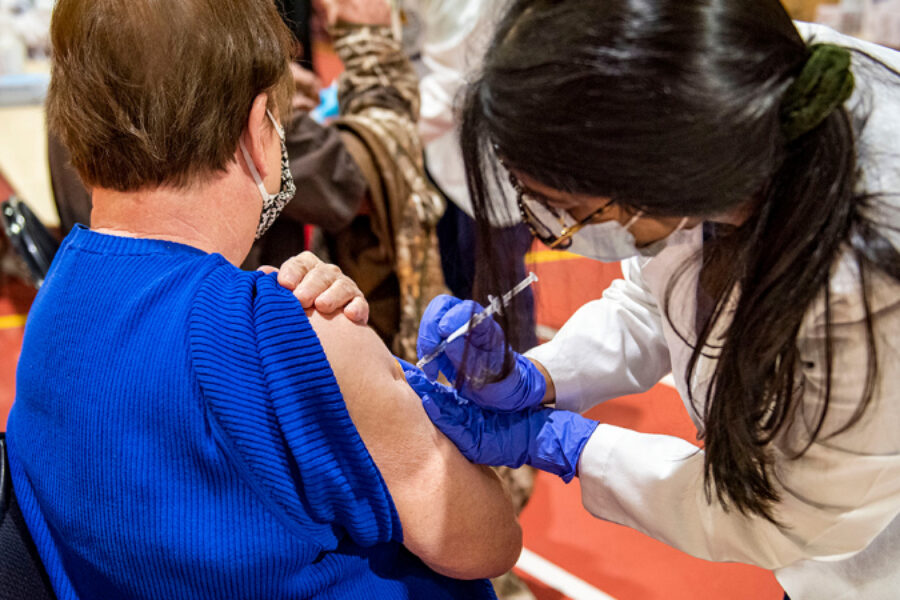NYITCOM-Arkansas Generates $44.6 Million in Economic Impact
The College of Osteopathic Medicine (NYITCOM-Arkansas) at Arkansas State University (A-State) generated an estimated $44.6 million in economic impact during the 2022–2023 fiscal year, according to a recent study conducted by Parker Strategy Group.

Earlier this month, Parker Strategy Group published the study “A-State Powers Growth: Transforming the Economy and Inspiring Hearts and Minds.” The project was completed on behalf of Arkansas State University and included an overview of the impact made by NYITCOM, which opened a location on A-State’s Jonesboro campus in 2016 through a private-public partnership between A-State and New York Institute of Technology.
The study shows that NYITCOM-Arkansas’ $44.6 million economic impact includes the support of 263 jobs and operations that result in $2.2 million in additional state and local taxes. (See NYITCOM-Arkansas’ portion.)
“In addition to making an impact on healthcare and health education in this region, we’ve always been focused on making positive contributions to our state and region through a number of ancillary avenues,” says Shane Speights, D.O., sit dean for NYITCOM-Arkansas. “It’s invigorating to see that not only are we leading much-needed health outreach programs and producing physicians who are now practicing here, but we are also making a significant contribution to the local and state economy. We’re just thrilled to see that.”
NYITCOM-Arkansas is accredited for 115 medical students per year in its Doctor of Osteopathic Medicine (D.O.) program. Additional offerings such as its Master of Biomedical Sciences and emergency medical services programs brought the Arkansas enrollment to 567 students in the fall of 2024.
According to the report:
- NYITCOM-Arkansas students contributed a total of $7.6 million as a result of their spending, including $5.2 million direct economic impact, $1.1 million indirect economic impact, and $1.3 million induced economic impact.
- The medical school’s operations and capital spending contributed a total of $36.1 million as a result of operational spending. This figure includes $19.4 million direct economic impact, $6.4 million indirect economic impact, and $10.2 million induced economic impact.
On May 23, NYITCOM-Arkansas graduated its sixth class. The Jonesboro-based medical school has enjoyed a 100 percent cumulative placement rate through the National Residency Matching Program. Approximately 65 percent of NYITCOM-Arkansas graduates have pursued primary care specialties, which is notable considering the significant needs Arkansas and the Greater Mississippi Delta region face in those practices.
From its first two classes alone (2020 and 2021), more than 50 NYITCOM-Arkansas graduates are either practicing in Arkansas or have committed to do so upon completion of their residency training.
By Casey Pearce
More News

Uncovering the Body’s Fat-Burning Strategy—It’s Math-Driven!
A new study by an NYITCOM-Arkansas researcher finds that the body calculates which fat to burn, choosing those that produce the most usable energy while consuming the least oxygen.

NYITCOM-Arkansas Announces Partnership With SOFtoSOM
NYITCOM-Arkansas has formed an official partnership with Special Operations Forces to School of Medicine (SOFtoSOM), an organization that helps military veterans who are interested in pursuing medical education.

Additional Alumni Named to Board of Trustees
Two New York Institute of Technology alumni have been named to the Board of Trustees, the most recent alumni to join the university’s governing board.

Finding His Balance
Noah Hoonhout’s piece about navigating life as a medical student was published to a Substack with more than 100,000 readers.

Physician Responds to CDC Vaccine Schedule Changes
Family medicine physician Shane Speights, D.O., site dean for NYITCOM-Arkansas, weighs in on the new recommendations.

Winter Weather Safety 101
Shane Speights, D.O., site dean at NYITCOM-Arkansas, shares tips to stay warm, dry, and safe during the cold months.